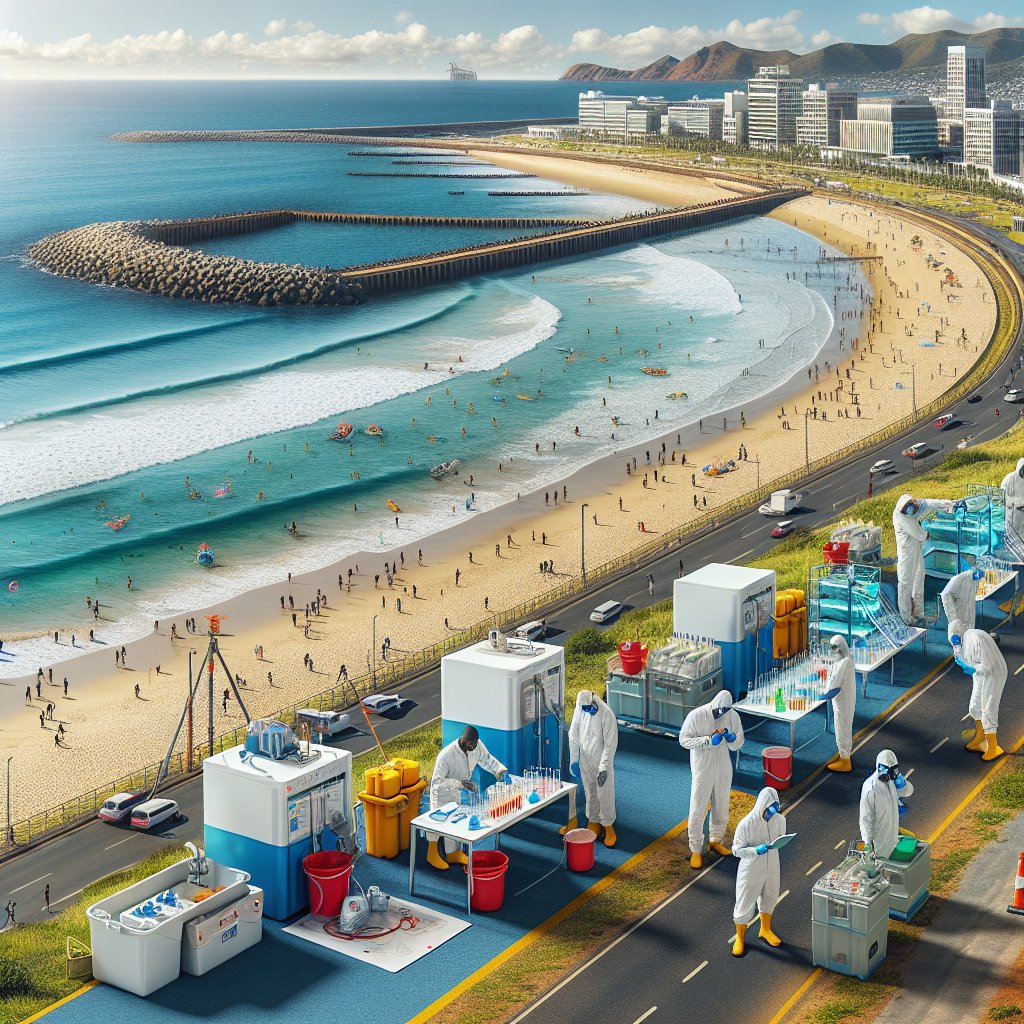Content created by AI
eThekwini Pioneers in Beach Water Testing and Transparency
eThekwini municipality is leading the charge in maintaining the safety and transparency of beach water quality along its coast, presenting an exemplary model of environmental stewardship in South Africa. The city, known for its breathtaking coastal line, has stepped up efforts to ensure that its beaches remain pristine and safe for both locals and tourists alike.
In the wake of the April 2022 floods, which led to significant water quality issues including elevated levels of E. coli bacteria, eThekwini municipality embarked on an aggressive water testing campaign. This weekly testing regime is more frequent than any other city in the country, doubling the standard testing frequency of once per fortnight adopted by other municipalities.
City manager Musa Mbhele has conveyed that this method allows for the swift detection of pollution incidents and facilitates immediate interventions to keep the beaches safe for swimming. Mbhele emphasized the city's proactive approach to water quality, stating, “We want to do the real Mccoy because we know that over time we will deal with that problem permanently.”
The process of rigorous water quality assessment involves collaboration with the independent water sampling company Talbot and the Durban University of Technology. This partnership underscores eThekwini's commitment to using scientific methods and expert analysis to manage the health of its coastal waters systematically.
eThekwini mayor Mxolisi Kaunda highlighted the city's readiness to close beaches should water testing reveal any concerns. This commitment to safety was demonstrated during the December 16 long weekend when three beaches were temporarily shuttered until conditions improved.
The municipality's transparency extends to keeping the public informed about water quality outcomes and operational status of its amenities. For instance, after extensive renovations, Mayor Kaunda was proud to announce the reopening of the Whalebone Pier in Umhlanga, further enhancing Durban's appeal as a premium tourist destination. Investments in infrastructure have also led to 34 swimming pools within the city becoming operational, with promises of even more openings in the near future.
Of particular note is the situation at the Ohlange estuary mouth and Umhlanga lagoon. These areas have faced closure since July 2021 due to contamination from a chemical spill. The city has maintained clarity on the status of these affected zones, underscoring their ongoing commitment to environmental remediation and community safety.
The eThekwini municipality has set a precedence not only in South Africa but potentially for coastal cities worldwide, marrying environmental management with civic responsibility, and showcasing how a transparent, science-based approach can lead to safer, more enjoyable beaches for everyone.





